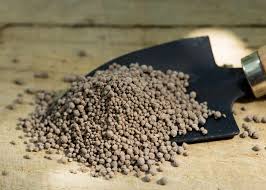
Nov . 18, 2024 17:48 Back to list
Premium Humic Acid and Potassium Humate for Enhanced Soil Health and Plant Growth
The Benefits of High-Quality Humic Acid and Potassium Humate
Humic acid and potassium humate have gained significant attention in the fields of agriculture and environmental science due to their remarkable properties and benefits. Derived from organic matter decomposition, these substances play a crucial role in enhancing soil health, improving plant growth, and promoting sustainable agricultural practices. This article explores the myriad advantages of high-quality humic acid and potassium humate, emphasizing their importance in modern farming.
Understanding Humic Acid and Potassium Humate
Humic acid is a complex mixture of negatively charged molecules found in soil, peat, and coal. It is a primary component of humus, which is essential for soil fertility. Potassium humate is a salt of humic acid that contains a significant amount of potassium, a vital nutrient for plants. The high-quality versions of these compounds are rich in bioactive substances and exhibit excellent solubility, making them particularly effective for agricultural use.
Enhancing Soil Structure and Fertility
One of the foremost benefits of using high-quality humic acid and potassium humate is their ability to improve soil structure. They enhance soil aggregation, leading to better aeration, drainage, and root penetration. This improved structure allows for greater soil moisture retention, reducing the need for frequent irrigation. Additionally, these compounds facilitate nutrient availability by chelating essential minerals, thus enhancing their absorption by plants. This becomes especially crucial in soils that are depleted or have high clay content, where nutrients are often locked away and difficult for plants to access.
high quality humic acid potassium humate

Boosting Plant Growth and Productivity
The application of high-quality humic acid and potassium humate directly influences plant growth and overall productivity. Research indicates that these substances stimulate root development, leading to stronger and more resilient plants. They enhance the germination rates of seeds and increase the vigor of seedlings. Furthermore, potassium humate helps in the uptake of potassium, which is vital for various physiological processes such as photosynthesis, enzyme activation, and water regulation. As a result, crops treated with these compounds often exhibit improved yield and quality, contributing to more sustainable farming practices.
Environmental Benefits
In addition to agricultural advantages, high-quality humic acid and potassium humate contribute positively to the environment. They play a crucial role in carbon sequestration, helping to mitigate climate change by storing carbon in the soil. Moreover, they can aid in remediating contaminated soils by binding heavy metals and organic pollutants, reducing their bioavailability and toxicity. This aspect makes them invaluable in ecological restoration efforts and sustainable land management practices.
Conclusion
In summary, high-quality humic acid and potassium humate are essential components for enhancing soil health, boosting plant growth, and promoting environmental sustainability. Their ability to improve soil structure, increase nutrient availability, and support vigorous plant development makes them invaluable tools for farmers striving to achieve higher yields while minimizing environmental impact. As the demand for sustainable agricultural practices grows, the incorporation of these organic substances will undoubtedly play a significant role in shaping the future of farming. By investing in high-quality humic acid and potassium humate, we not only nurture our crops but also support a healthier planet.
-
Premium Amino Acid Fertilizer | Rapid Plant Growth Booster
NewsJul.31,2025
-
10 10 10 Fertilizer Organic—Balanced NPK for All Plants
NewsJul.30,2025
-
Premium 10 10 10 Fertilizer Organic for Balanced Plant Growth
NewsJul.29,2025
-
Premium 10 10 10 Fertilizer Organic for Balanced Plant Growth
NewsJul.29,2025
-
Premium 10 10 10 Fertilizer Organic for Balanced Plant Growth
NewsJul.29,2025
-
50 Pound Bags of 13-13-13 Fertilizer for All Plants – Bulk & Organic Options
NewsJul.28,2025
